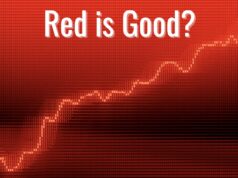Thanks as always to Ryan McCormack for this… there's always so much good reading, listening, and viewing shared here by him! Subscribe to get these directly from Ryan via email.
Insights about improvement, innovation, and leadership…
Operational Excellence, Improvement, and Innovation
SPC > ERP
ERP systems: the ‘do everything' systems we love to hate. ERP systems are often large and expensive, and this can incentivize organizations to try to use the systems or customize them for purposes beyond their original design. Traditional ERP systems are also notoriously unfriendly for data analysis and improvement work, usually requiring cumbersome data extraction and export to analytic tools. Engineers and quality inspectors at a medical device manufacturer in Grand Rapids ditched their ERP for an SPC system, saving 6000 hours of inspector time.
The scaling is the hardest part
It's hard to get a good idea into production. It's REALLY hard to scale good ideas. Organizations often employ strong and standardized methodologies for ideating, testing, and incubating innovations, but there's often no plan or method for scaling. The missing discipline behind failure to scale.
Yo quiero innovation
Innovation does not often result from an ‘innovation sprint' in an ‘innovation lab' twice a year, but rather from iteration, perspiration, and obsession. I enjoyed learning how Taco Bell's innovation kitchen features an obsession with how to fold edible materials, how to maintain crunch in soggy conditions and the right level of cheesiness.
Bring me problems, and let's find a solution together
I cringe whenever I hear leaders say “Don't bring me problems, bring me solutions”. This drives solution-thinking and advocacy over inquiry. Great leaders think “Bring me problems and let's find a solution together”.
Creating a Culture of Improvement
Trust in leaders is falling. Here's how to get it back.
Trust in leaders is falling since the start of the pandemic, and so is engagement. Trust follows when change is clearly defined and successfully managed, and a strong, positive corporate culture is in place. When employees strongly agree that their leaders implement three specific actions, 95% fully trust their leaders.
Automation enables innovation
I was long ago taught that automation and adding labour are the solution approaches that innovators and improvement practitioners should consider only after exhausting all other options. Of course, this was during a time when automation was very expensive and the cost of capital was multiples of what it is today. Still, automating waste remains a risk when jumping to solution. But can automation actually cultivate innovation and improvement? This article from Forbes argues that automation as a capability can make an organization more responsive, and done as a regular event to improve the customer and employee experience, can cultivate an innovation mindset.
That meeting could've been an email
Managers' time is becoming increasingly scarce and organizations are finding new ways to protect it, including meeting-free days and standards for efficient meetings. That meeting was too long (and it probably could've been an email).
Last dance for the daily remote standup?
To huddle daily or not? Daily stand-ups were long a hallmark of production environments before being adopted and adapted by the agile crowd. I've been involved in some form of a daily huddle for much of my career, across multiple industries and every format you can imagine (asychronous/synchronous, in-person/remote/hybrid). My conclusion: done well, a daily stand-up can provide a team with a valuable habit to align, improve, and enable high performance.
I enjoyed this debate on ![]() Work Check by Atlassian on whether it's time to ditch the remote daily stand-up. Both sides of the debate raise some compelling points, citing the timing, purpose, structure, and intensity as key success factors. Is it time to ditch the daily stand-up? Not for me.
Work Check by Atlassian on whether it's time to ditch the remote daily stand-up. Both sides of the debate raise some compelling points, citing the timing, purpose, structure, and intensity as key success factors. Is it time to ditch the daily stand-up? Not for me.
Coaching – Developing Self & Others
Functionally fixed
It's common to get stuck in a rut of what we already know. “Functional fixedness” is a cognitive bias that limits creativity when we automatically narrow down the function of a given tool. How can we overcome functional fixedness and stop sticking with what we know?
The map is not the territory
Strategy roadmaps. Project plans. Initiative blueprints. We make maps all the time at work in an attempt to define the best strategic path forward. But what happens when our maps no longer apply to the current terrain? Reminder: the map is not the territory.
Follow Ryan & Subscribe:
LinkedIn: https://www.linkedin.com/in/rjmccormack/
Subscribe to receive these via email
Please scroll down (or click) to post a comment. Connect with me on LinkedIn.
Let’s work together to build a culture of continuous improvement and psychological safety. If you're a leader looking to create lasting change—not just projects—I help organizations:
- Engage people at all levels in sustainable improvement
- Shift from fear of mistakes to learning from them
- Apply Lean thinking in practical, people-centered ways
Interested in coaching or a keynote talk? Let’s start a conversation.









